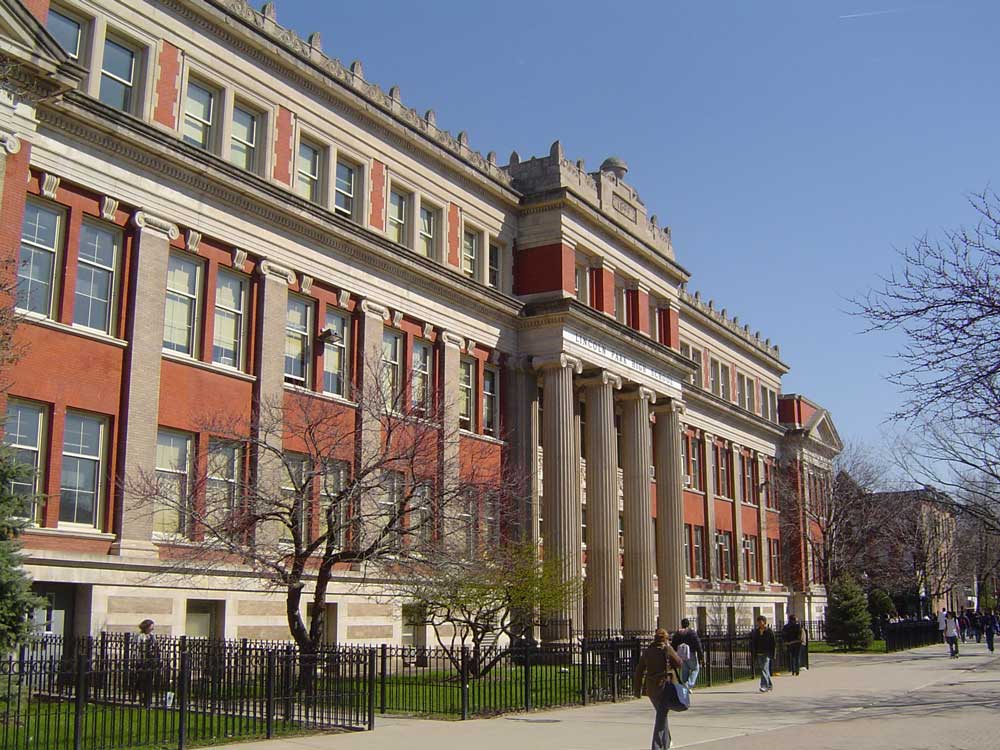
Making civics relevant through news literacy

Scott Zwierzchowski teaches civics to students in grades 11 and 12 at Lincoln Park High School in Chicago. In September 2020, he and his colleagues implemented a short news literacy unit. Their goal is to prepare students to evaluate sources and sort fact from fiction throughout the year. NLP recently checked in with Scott to learn more about how he incorporates news literacy into his courses. Teaching is taking place in a fully remote learning environment due to the COVID-19 public health crisis.
NLP: Why did you decide to use Checkology®?
SZ: [My colleagues and I] had a conversation about the continual need to connect civics and government topics to modern day issues and debates/discussions, and thus a need for quality news literacy. After finding more out about Checkology, I was really psyched about it. Looking at how interactive Checkology was, and how it was really tailored to ease of use and quality engagement tools, we knew it would be helpful for us. In addition, the option to bring in a vetted, professional journalist into the classroom was a very intriguing option — although we ultimately did not do it for time constraints, I think we would pursue it in the future..
NLP: How did it fit in with your civics/law focus?
SZ: We try to start out the year with a unit on news literacy. Our plan has been to introduce topics of news literacy and continually refer back to them throughout each unit of study, but that is a continual process of development. My colleagues and I are working on ways, for example, for students to use the summative assignment they make throughout the year to evaluate sources they find online.
NLP: What did fully remote implementation of Checkology look like?
SZ: It looked different on different days! On some days, we would introduce the topic synchronously in our Google Meet, for about 10 to 15 minutes, then let the students loose to do the lesson on their own, and I would give feedback to the students as they completed it. On one day, we did it together by me projecting the lesson and them answering the questions on their own devices. That worked decently well, as they were already a bit familiar with that format through PearDeck.
NLP: What did students think about using the platform?
SZ: Students reported really liking the asynchronous aspect. They also reported really liking the format — they said it was easy to navigate, easy to answer questions, and was super simple to provide their ideas. They thought it was clear, and mentioned that they learned from it, and also mentioned that it wasn’t too hard, or too easy.
NLP: What kind of impact have the lessons had on your civics students?
SZ: I think our teachers on the team have seen some great improvements! As we dive into our elections unit, the students are demonstrating skills of being keenly aware of the author of the source, biases of sources, and have pointed out even logical fallacies of their peers, other teachers, and administrators.
NLP: Do you plan on using Checkology in the future?
SZ: We DEFINITELY plan on using it in the future. I’ve been recommending it to colleagues who teach the AP Government and Politics course, and others throughout our school, and how beneficial it is. Ultimately, I’d love to create more plans to bring a full, longer unit into fruition.
Check out this civics news literacy unit
Checkology teachers: assign Scott’s course to your class. Click here for instructions.
Essential question
What does it look like to be an educated information consumer?
Objectives
Students will be able to achieve mastery in the following unit content topics and skills.
Topics
- Defining news
- Media bias
- Language in news
- Commentary vs. news
Skills
- Identify news source information
- Analyze news sources for purpose and content
- Evaluate news sources for bias and logical fallacies
Unit plan
Day 1: What is News?
What factors determine the newsworthiness of a story? Students learned about Checkology’s “Big Four” factors in the lesson “What is News.” They are the extent to which something is timely, interesting, important and unique.
Day 2: Understanding Bias
Students completed the Checkology lesson. Then, they examined three news stories in groups and analyzed the types and forms of bias that they may have detected in the stories.
Days 3 and 4: The Power of Language with Checkology’s “Arguments and Evidence” lesson
On day 3, students completed “Arguments and Evidence” asynchronously. Then, together in class on day 4, students debriefed on the lesson and further practiced together remotely using the “Spot the Logical Fallacy” exercise from Checkology.
Day 5: Fact-checking in the digital age
Students supplemented Scott’s fact-checking lesson with the Checkology fact-checking mission “Verifying social media content” with David Clinch from Storyful.
- Note: The class went through Hurricane Sandy photos [in this slide deck] and discussed “How might people who are trying to get information about the hurricane have been influenced by the images?” Discussing how altered images and unconfirmed sources affect one’s perception of the world helped us ground some of our initial ideas on verifying online content. Discussing the Truman photo and its impact helped us further discuss why verifying information in all forms of news media is important (which we’ll definitely be talking about in class this week post-election). We had used this fact-checking in the digital age handout, but found that many students have used this site before in their computer science classes. Therefore we went with the Checkology lesson. Students said the lesson made the task easy to accomplish and helped them better understand the steps for fact-checking. The Checkology lesson also provided them with a more realistic example of what they would see every day, versus examples concocted for classroom purposes.
Days 6 and 7: End-of-unit project
Students created a process to help them determine the credibility of a news source. This process is meant to be used throughout the year when studying other topics and referencing news sources. View the assignment and a template You can also use Checkology’s Quick Check widget in the Check Center to help guide students through the process of determining the credibility of a claim or a source.